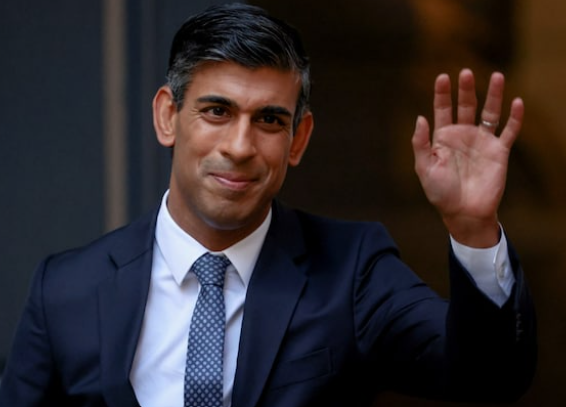
In a recent turn of events, Rishi Sunak has found himself at the center of a heated controversy surrounding the freedom of speech. Today’s front-page news features Sunak boldly expressing his support for permitting free speech, amidst a divisive conversation concerning biological s*x and trans rights.
The ongoing debate has taken a rather unpleasant turn, with tensions escalating and opinions becoming increasingly confrontational. The question arises: How do we navigate this delicate balance?

One prominent voice in this discourse is Kathleen Stock, whose perspective is deemed reasonably moderate, without veering into extreme territory. The ability to engage in a healthy debate lies within the realms of acceptable discourse. However, it is crucial to acknowledge the significance of free speech, as it should extend to individuals with opposing viewpoints.
A recent incident serves as a reminder that the concept of free speech operates both ways. Last week, an international weapons expert, Dan Caseta, faced the consequences of being “no platformed” and canceled from speaking at a Ministry of Defense conference.
The decision to exclude him was primarily based on a few critical comments he made about Brexit, as he now identifies as a member of the Liberal Democrats. This event highlights the need to scrutinize our commitment to free speech. Are we willing to support individuals whose views we disagree with?
The right to protest is a fundamental part of our democratic society, and it should not impede someone’s right to express their thoughts. While people have the freedom to voice their dissent, it should not cross the line of obstructing others from speaking. Preventing Kathleen Stock from expressing her opinions should not be condoned.
It is disheartening to witness the intolerance exhibited by some individuals who struggle to hear opinions that differ from their own. This kind of behavior is perplexing, and it raises questions about personal growth and the influence of parents and educational institutions.
The indoctrination of young minds in schools and universities is a concerning trend, with relationships and sex education introducing trans ideology to impressionable children. While it is essential to foster understanding and acceptance, striking a balance is crucial to prevent an overzealous approach that stifles critical thinking.
The debate surrounding gender and s*x is not without its controversies. Critics argue that the concept of gender separate from biological s*x is a recent invention that gained traction through the works of John Money in the 1950s. Unethical experiments conducted by Money, which tragically resulted in the suicide of one of his subjects, formed the foundation of this notion.
Over time, the ideology gained prominence through figures like Judith Butler and has now infiltrated educational institutions, leaving children confused and polarized.
In considering these matters, one cannot help but question the role of parents and guardians. It is essential to reflect inwardly when confronted with an intolerant child who struggles to tolerate opposing viewpoints.
Do parents bear some responsibility in shaping their child’s ability to handle differing opinions?
As the dialogue continues, it is crucial to promote a healthy exchange of ideas while upholding the principles of free speech. The path forward lies in finding common ground and respecting the rights of individuals to express their beliefs, even when they challenge our own. Only then can we foster an environment that encourages critical thinking and open-mindedness, rather than perpetuating division and hostility.




